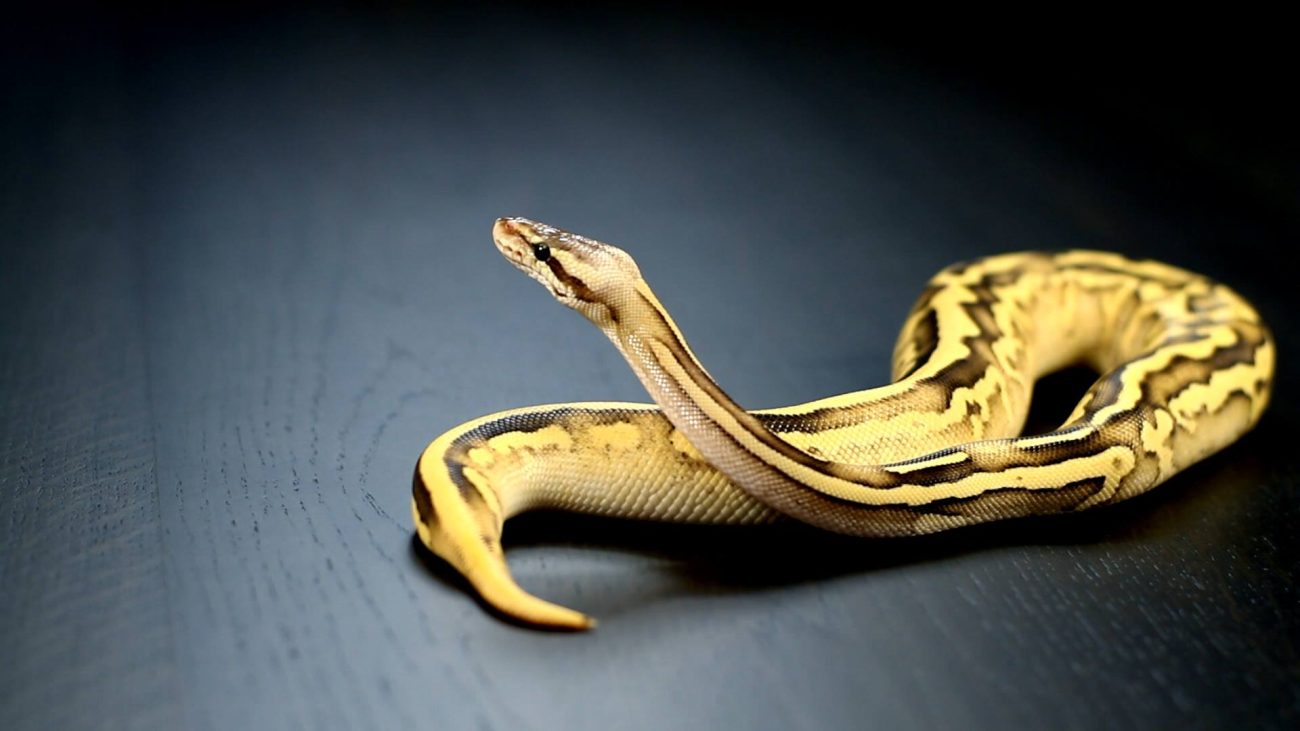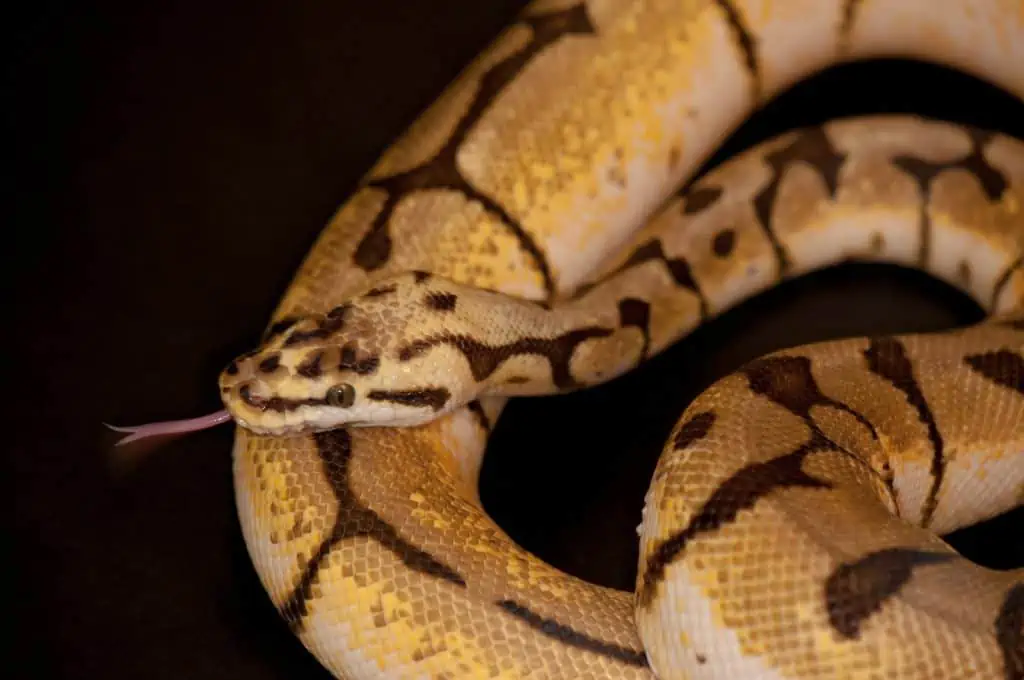Have you ever strolled through the aisles of your nearby pet store, casually glancing at the array of small companions on display? Chances are you’ve encountered the captivating presence of a ball python at least once. Maybe you’ve even considered bringing one into your home, but you’re unsure if it would make a good pet for you.
Ball pythons have soared in popularity as pets over the years, captivating the hearts of reptile enthusiasts and casual pet owners alike. It is a testament to their unique allure and suitability as pets.
From their docile nature to their manageable size and mesmerizing patterns, ball pythons have taken the pet-loving community by storm.
Let’s unravel why they might be the perfect addition to your household, address common questions, and guide you toward making an informed decision.
Can Ball Pythons Be Kept as Pets?
Research shows that ball pythons are the most favored and sociable snake pets. Following bearded dragons, they hold the second position in global popularity among pet reptiles. So yes, it’s definitely doable to have them as pets, but there are a few things to think about.
Unlike dogs or cats, these ball pythons can roam freely around the house. They need a secure and spacious enclosure with the right temperature, humidity, lighting, and hiding places. They also need a regular supply of clean water and frozen-thawed rodents as food.
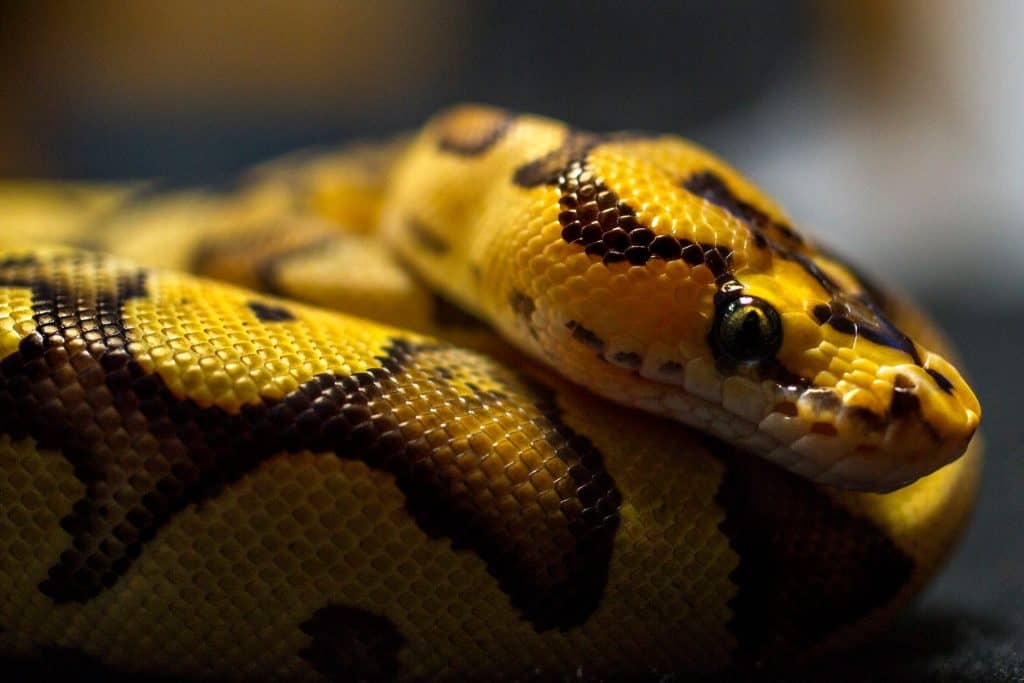
Reasons Why Ball Pythons Make Great Pets
Ball pythons are great pets for snake lovers. They have many advantages that make them popular in the pet market. Here, I have outlined some of the main reasons why a ball python will be good for you:
1. Pleasant Behavior and Temperament
You might think snakes are scary because they can bite you, but ball pythons are gentle and shy. They are one of the best snakes for beginners because they are friendly and easy to handle.
They have the lowest strike rate among pythons and hardly ever bite anyone, and even if they do, it’s not a big deal. It doesn’t hurt much, and you don’t need to see a doctor.
Of course, every snake is different, so you should always check its personality before buying it. You don’t want to get a rare, aggressive ball python. But most are sweet and would rather hide in a ball than attack you.
2. Low Maintenance
One of the biggest advantages of ball pythons is their low maintenance requirement. They are easy to care for and don’t need much from you. Here are some reasons why:
- They are mostly inactive and stay in their enclosure, so you have more free time.
- They eat and poop very rarely, usually once a week or less – so you don’t have to worry about feeding them often or cleaning up after them.
- They don’t need any training, exercise, grooming, or entertainment, unlike other pets that can be demanding and expensive. You can save money and time by not having to pay for things like training classes, grooming sessions, or toys for them.
🐍 To learn more about them, click here to explore our vast collection of articles
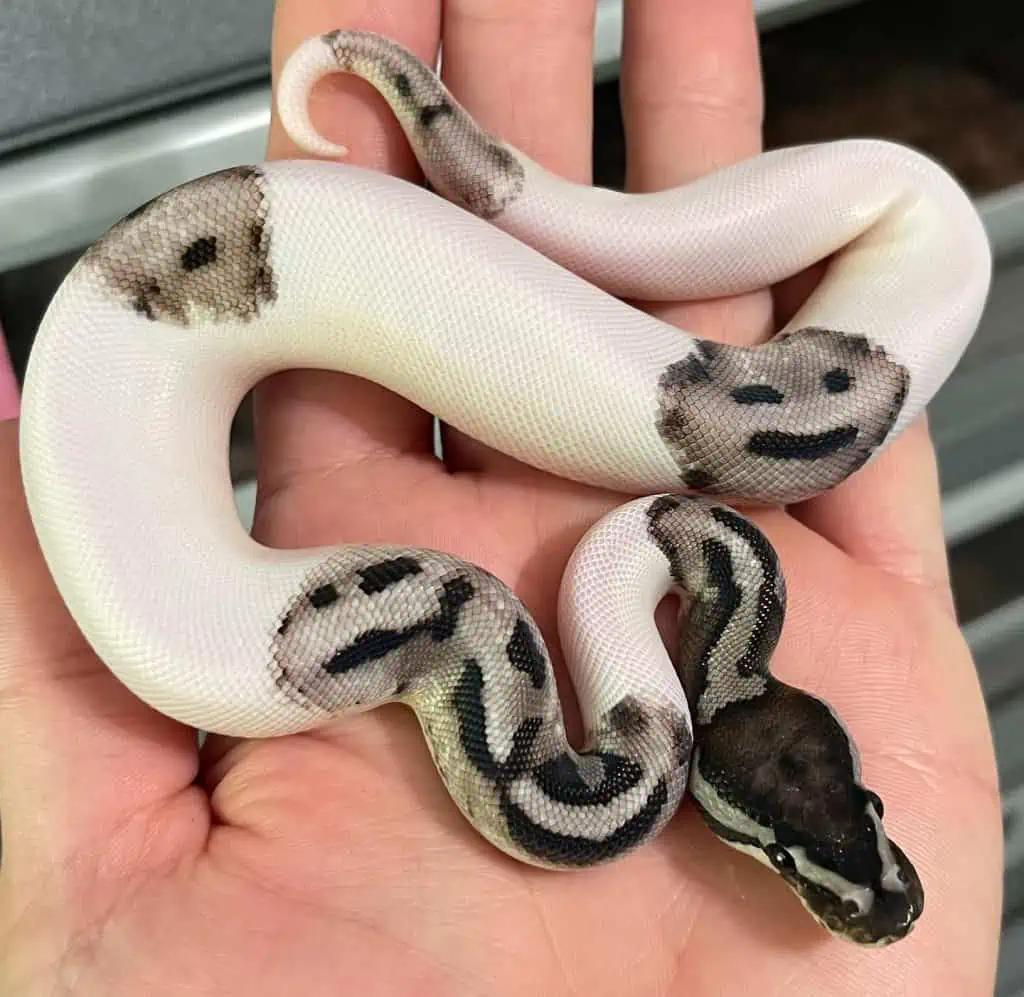
3. Small and Manageable Size
These non-venomous pet snakes are the smallest African-pythons, so they don’t need much space. You can keep them in your apartment or small house without any problem. Here are some facts about their size and housing:
- Ball pythons are very adorable and can curl up in your hand. They are born about 10 inches long and grow depending on their sex.
- Ball pythons are unlike the huge snakes you hear about in the news. They are too small to hurt anyone, even kids. The biggest they can get is six feet, but most are between three and five feet. It takes them a few years to reach that size.
- Ball pythons can live comfortably in small tanks. A ten-gallon tank is enough for a baby, and a thirty to forty-gallon tank is enough for an adult, but more space is always better.
4. Cleanliness
You might think that having a pet ball python is a lot of work, but it’s the opposite. Ball pythons are very clean animals that don’t cause any mess or smell in your house.
They only poop once weekly, so you must spot-clean their tank weekly and thoroughly scrub them monthly. That’s it—no extra chores or hassles for you.
5. Affordable To Feed
Ball pythons are affordable pets. They only need to eat something as wide as their body. You can start with a mouse or a small rat once a week when it’s young and then switch to every two weeks when it’s older.
The mouse or rat will get bigger and pricier as your snake grows, but it’s still much cheaper than feeding a dog. And the best part is you can train your ball python to eat frozen mice that you thaw out before feeding.
6. Low Veterinary Bills
Unlike a dog or cat, you don’t have to worry about taking your reptile buddy to the vet often. In most cases, they won’t need shots, pills, blood tests, teeth cleaning, or surgery. Going to the vet can stress them out more than help them.
Some people like to check their ball python once a year for parasites, especially snake mites. That’s okay but not necessary.
You only need to see a reptile vet if your snake gets sick, which is rare. But be prepared to pay more than a regular vet, depending on where you live.
7. Have a Long Life-Span
Ball pythons have many enemies in the wild, like humans, wild pigs, and leopards. Most of them die before they reach adulthood.
The average lifespan of a wild ball python is only 10-15 years. But in captivity, they can live much longer. The typical life span of a captive ball python is about 30 years. Some of them have lived even longer than that.
According to a report, the oldest ball python ever recorded is still alive in a zoo in St. Louis. She is about 63 years old and surprised everyone by laying eggs at 62 without mating for 15 years.
The second oldest ball python was born in the Philadelphia Zoo and lived until he was 47. He had official birth records to prove his age.
8. Well-Disposed to Handling
You might want to get a ball python if you often handle snakes. They are very calm and friendly reptiles that don’t mind being touched by their owners. They are also happy to be left alone in their enclosure.
Ball pythons are great for kids because they are not aggressive and get used to being handled by people. But you should always watch your kids when they handle with a snake.
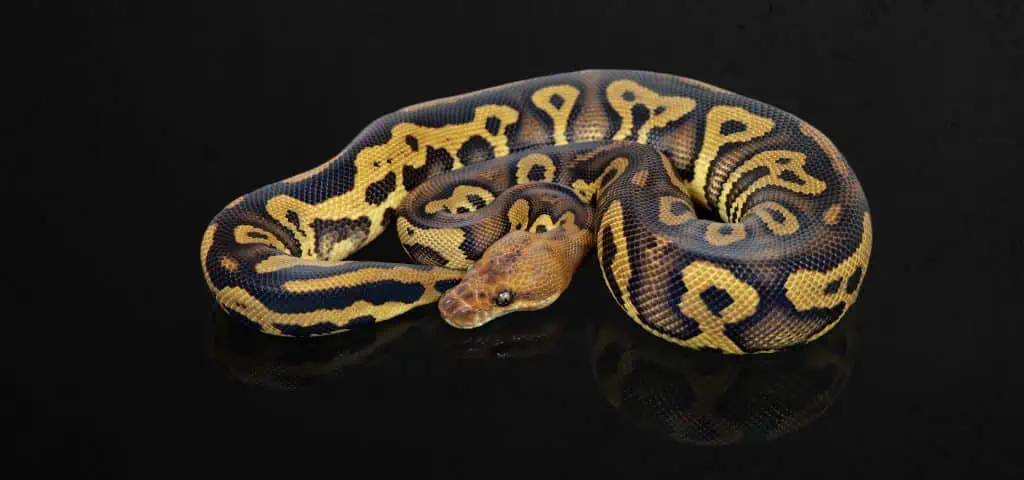
9. Available in a Variety of Morphs and Colors
If you love fashion and style, you’ll be amazed by ball pythons. They have so many morphs, which are different patterns and colors. You can pick your favorite one, whether white or black, stripes or speckles, red or black eyes. There’s a ball python morph for everyone.
Are Ball Pythons a Good First Pet?
If you’re new to snake keeping, ball pythons are perfect. They are calm and easy to look after. You don’t have to spend much time with them to give them what they need. The most important thing is to set up their enclosure properly. You have to make sure they have the right temperature and humidity levels.
Do Ball Pythons Like Being Petted?
Ball pythons are not really into being petted. They don’t mind if you handle them gently, and they are used to it, but they don’t enjoy it like mammals.
Snakes have a different way of feeling things. When they rub against something, it’s usually for a reason; maybe they are:
- Shedding their skin
- Mating with another snake
- Cleaning their mouth after eating
Snakes also like to explore different textures and surfaces, so they might squirm around in bedding or on your hand.
Some snake owners say their ball pythons even rub their faces on them, but that’s probably because they are trying to fix their jaw or eliminate some food bits.
Do Ball Pythons Get Aggressive?
Ball pythons are generally not aggressive, but it’s wise to be cautious. Despite their reputation, ball pythons aren’t dangerous pets; no fatalities have been recorded. Still, you should be careful, especially around kids and infants.
Just remember, they like to curl up into a ball. So, never try to uncoil them forcefully, as that might make them act aggressively.
Even though 3–5 feet might seem small for a snake, don’t wrap it around your head or neck. Even if they’re not trying to hurt you, they can squeeze pretty tightly when just trying to hold on.
How Do You Bond With a Pet Ball Python?
It takes time to bond with your reptile, but doing so is possible and rewarding. Here are some tips on how to bond with your pet ball python:
- Handle It Often: The more you handle your ball python – the more it will get used to your presence and scent. You should handle your snake at least 1-3 times a week for about 15 to 30 minutes each time. Research indicates that ball pythons undergo minimal stress during short-handling sessions. Be gentle and calm when you pick up your snake, and avoid sudden movements or loud noises that might scare it. You can also let your pet reptile explore your hands, arms, shoulders, or lap as long as you keep an eye on it and prevent it from escaping or getting injured.
- Handle It Appropriately: When you handle your ball python, you should support its body with both hands and avoid grabbing its head and tail. You should avoid touching its eyes, mouth, or vent, as these are sensitive areas that might irritate or stress your snake. You should never squeeze, pull, or twist your snake, which can cause pain or injury.
- Understand When NOT To Handle It: There are some situations when you should not handle your ball python, which can cause harm or discomfort to your snake. These include:
- During shedding-period
- When it is digesting
- If it is sick or injured
- Ensure It Is Fed Correctly: Feeding your ball python correctly can also help you bond with it. Feed your slithery companion in a separate container with the help of a tong so that it doesn’t link your hand to food.
- Learn What It Likes: Every ball python has its personality and preferences. You should observe your snake’s behavior and learn what it likes & dislikes. You can then provide those things for your snake likes. For example, if your snake burrows in the substrate, you can provide a deep layer of coconut fiber or aspen shavings to dig in.
Remember to be patient and respectful with your snake, and enjoy spending time with it.
To Sum It Up
Of course, owning a ball python is not for everyone. You should only get one if you are truly interested in snakes and willing to provide them with a suitable environment and a lifelong commitment.
Ball pythons are fascinating, beautiful, gentle creatures that can make wonderful pets. They are relatively easy to care for once you learn the basics of their housing, feeding, and handling.
Take the plunge if you think you have what it takes to be a good ball python owner. You’ll be rewarded with a loyal, fascinating, and beautiful pet that will enrich your life in many ways.
Now, over to you – what are your thoughts on ball pythons as pets? Are there any concerns or questions about their care, behavior, or maintenance? Feel free to share your thoughts in the comments section below.

